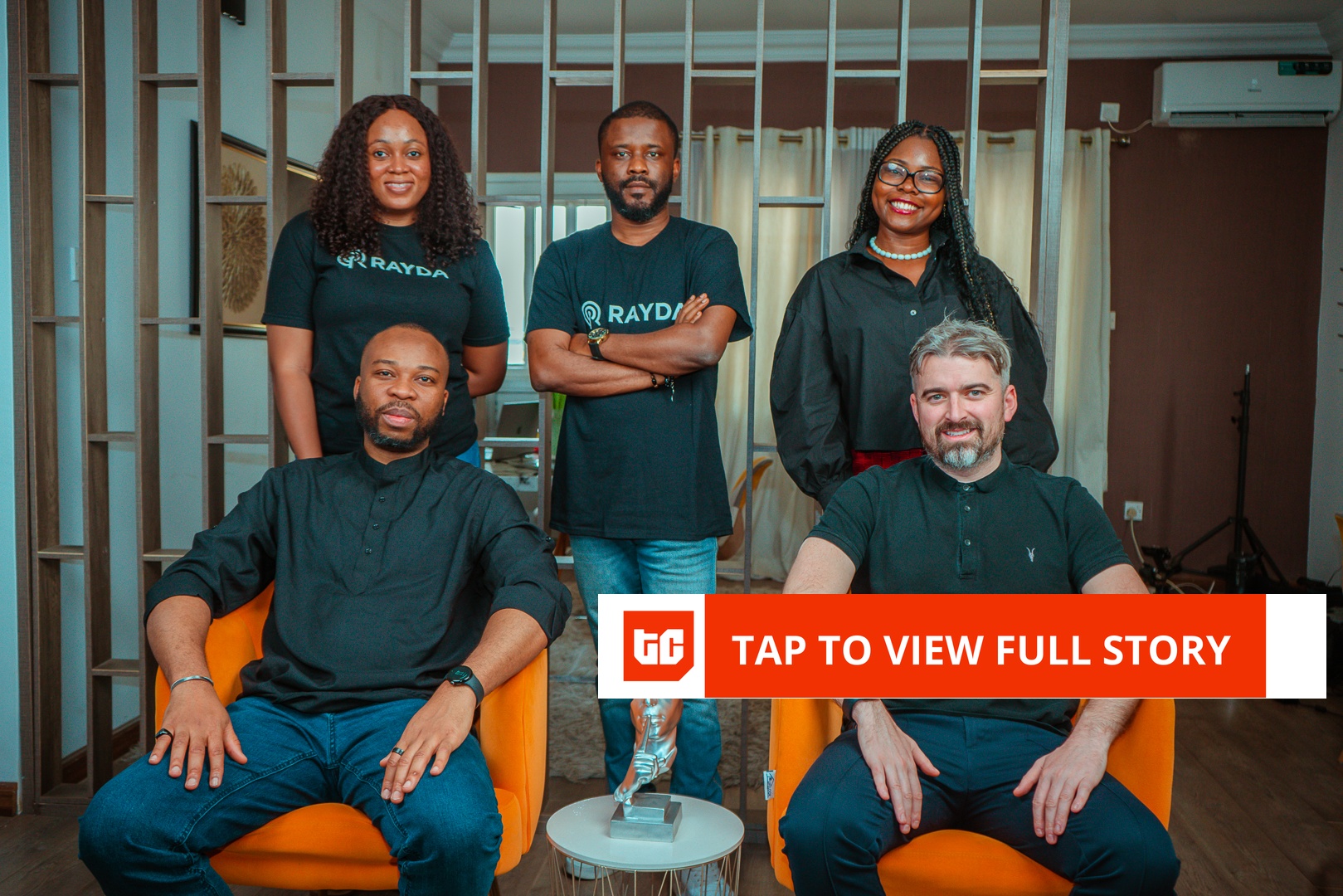When 54gene shut down in 2023, the collapse of one of Africa’s most visible biotech startups was widely read as a cautionary tale about scaling too fast in a volatile market. Yet for Francis Ogochukwu Osifo, who had co-founded 54gene and served as its vice president of engineering, that chapter was a stepping stone to a new venture in a completely different field. Out of the day-to-day frustrations of managing laptops, tablets, and IT assets for hundreds of distributed employees came Rayda, a device lifecycle management startup now active in over 170 countries.
The core problem was painfully clear at 54gene, where the company’s rapid expansion exposed just how messy IT logistics could be.
“I discovered firsthand the problem of equipping remote teams with IT equipment at 54gene,” Osifo told me. “As co-founder/VP of engineering, I managed our IT hardware (mostly laptops and tablets). That meant I had to ensure new employees received their company-issued laptops with the security software before onboarding. If employees left, I had to ensure we retrieved the laptops or other devices.”
As 54gene grew from 45 employees to over 300 across Africa, North America, Europe, the Gulf, and Canada during the COVID-19 testing boom, equipment management quickly became unmanageable. A shipment to Nairobi for a new Kenyan hire sat for months in customs, requiring repeated visits, additional paperwork, and what Osifo described as a “king’s ransom” in fees.
In the end, the company spent more than if it had purchased the device locally. At scale, these inefficiencies undermined productivity and financial reporting, as IT teams struggled to reconcile asset values in spreadsheets with what was actually in circulation.
Like its name suggests, Rayda set out to give firms radar-like visibility over their devices, whether in transit, storage, or employee use. The shift from biotech to IT logistics may appear stark, but Osifo told me he sees continuity in his engineering background. He argues that solving practical infrastructure problems for global companies came more naturally than remaining in biotech, which would have required deep sector expertise.
What does Rayda do?
Rayda is a device lifecycle management platform. This means it enables companies to procure laptops and peripherals for new hires, track them in real-time once deployed, retrieve them when staff leave, wipe and securely store them, and eventually redeploy or dispose of them.
The platform functions as both a marketplace and an operations layer. IT or HR managers log into the system to place requests for onboarding or offboarding. From there, the workflow is tracked at every stage.
“It tracks their request in real-time and provides all relevant details on the order: Is the laptop in transit? Is it already in the warehouse? Has it been wiped? Is it in storage? They have a detailed history of what’s happening in real time with that particular piece of equipment,” Osifo explained.
Rayda does not attempt to compete with enterprise security providers. Instead, it integrates with the mobile device management solutions that many companies already use, such as Microsoft Intune, Apple Business Manager, and JumpCloud. This ensures that devices remain compliant while Rayda handles logistics, visibility, and asset accounting.
The tight coupling between Rayda’s platform and HR systems is a distinctive feature since the startup has built integrations with over twelve human resource information systems (HRIS) providers, allowing the onboarding and offboarding process to trigger device logistics automatically. For example, when a new hire enters a company’s HRIS, Rayda can initiate the procurement and delivery of the necessary equipment. When an employee is marked as leaving, the system prompts retrieval and data wiping.
A technical and operational engine
Behind the user-facing interface is an operations engine that relies heavily on partnerships. The company currently has 21 full-time staff, mostly based in Nigeria.
Rather than setting up local offices in each of the 170 countries it serves, Rayda works with vetted procurement and logistics partners. These partners are selected after evaluating their infrastructure, communication standards, and ability to meet specific service level agreements to allow Rayda to enforce consistent outcomes while tailoring its operations to the quirks of each market.
Osifo said delivery services do not commonly use tracking numbers in countries like India and Pakistan. Rayda addresses this by choosing partners who can provide proactive status updates and proof of delivery.
Integration with established logistics providers in other regions provides traceability through standard systems. By codifying these requirements into a playbook, Rayda avoids reinventing processes each time it enters a new geography.
Where competitors often take four to eight weeks to deliver equipment, Rayda claims to manage it in three to eight business days. In one case, a global competitor took eight weeks to provide a laptop to an employee in Costa Rica. Rayda managed the same delivery in four days.
Revenue and funding
The company earns money through two main streams. Subscriptions suit firms that consistently hire across multiple countries and want Rayda baked into their IT workflows. Transactions cover one-off services such as onboarding, offboarding, or storage.
According to Osifo, most revenue comes from the latter. “We make money in two ways: subscriptions and transaction revenues on onboarding, offboarding, and device storage.” Between 70% and 80% of revenues are generated through onboarding and offboarding requests.
On the funding side, Rayda has secured an angel round with participation from Microtraction, Beta Ventures, Techstars, HOAQ Club, and several syndicates. It is currently preparing for a fresh round of financing.
Offboarding and retrieval
If getting devices to employees quickly is one part of the problem, recovering them when staff leave can be even harder. Local infrastructure constraints, customs hurdles, or simple reluctance on the part of employees can all complicate retrieval.
Rayda addresses this through its network of partners and by acting as a neutral intermediary between employers and staff.
“We work with partners in the ecosystem we’ve built to recover devices during employee off-boarding,” Osifo explained. “Our partners understand the local nuances to ensure the device gets picked up on time, is wiped, and securely stored.”
In cases where employees hesitate to return equipment, Rayda can explain the situation and prompt employers to provide additional support. Such nuance helps reduce losses while maintaining relationships.
Competition and positioning
Rayda’s competitors vary depending on geography. In Africa, managed service providers dominate but are usually confined to a single country. Globally, firms like Hofy, which was acquired by Deel, Workwize in Europe, and GroWrk address similar problems.
“We stand out in the industry because we excel in emerging markets: Asia, Latam, and Africa. Other providers are not strong in those geographies,” Osifo said. This focus can be decisive for global companies with hundreds or thousands of employees across 40 countries in emerging markets.
IT departments are often small, with just a handful of staff managing networks, security, compliance, and support. Handling procurement, shipping, and recovery across dozens of countries is a burden. Rayda’s pitch is that it lifts this operational load, automates as much as possible, and provides real-time visibility.
A sector under pressure
The device lifecycle management industry is estimated to be worth $4.8 billion. Growth has been fuelled by the global shift toward hybrid and remote work, where companies must equip staff across borders rather than within a single headquarters. Yet the sector is not immune to pressure. Currency fluctuations, customs regulations, and fragile logistics systems create constant risks in emerging markets. Competitors are also expanding aggressively, with Deel’s acquisition of Hofy signalling consolidation at the top end of the market.
Rayda’s challenge will be to prove that its model can scale without being dragged down by the same bottlenecks it promises to solve. The reliance on local partners is efficient but may expose the company to uneven service quality. Its claim of delivering within days rather than weeks is impressive, but sustaining that speed as volumes increase will require constant investment in systems and oversight.
Looking ahead
Osifo says Rayda is preparing to release a new version of its platform driven by artificial intelligence. The aim is to use AI to help IT managers make decisions, anticipate bottlenecks, and streamline workflows further.
“There is so much room for growth,” he said. “We plan to release a new version of our AI-driven platform in the next few months. Our ambition is to evolve from a device life cycle management company into a bigger player in the future of work.”
Mark your calendars! Moonshot by is back in Lagos on October 15–16! Join Africa’s top founders, creatives & tech leaders for 2 days of keynotes, mixers & future-forward ideas. Early bird tickets now 20% off—don’t snooze! moonshot..com










